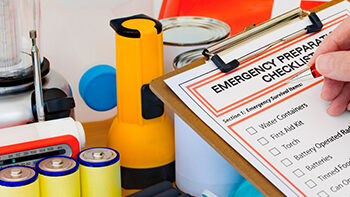
Why Renters Should Care about Disaster Readiness
Despite the fact that renters do not have a stake in the damages caused by natural disaster, they should still have a very serious mindset when it comes to an impending event of such a caliber. After all, if there has not been enough time for people to evacuate before a natural disaster hits, their own and their families’ lives may be at risk. Many different things could go wrong with nature when you are a renter, including:- Tornados or hurricanes that threaten the building as a whole.
- Earthquakes that threaten the structural integrity of the building’s foundation.
- Wildfires that may spread to the building.
- Flooding that may get into the lower levels of the building, blocking escape routes.
- Many other types of disasters, including hail, blizzards, tsunamis, volcanic eruptions and more.
Why Landlords Should Care about Disaster Readiness
On the other side of the same coin, landlords should have just as much of a game plan in case something bad does happen while their tenants are on their property. Being aware of the potential risks that might befall your property in the event of a natural disaster is critical towards potentially saving the lives of those individuals and families who trusted you enough to keep you in business. For example, apartment building owners in Florida on the Gulf of Mexico must be aware of the potential dangers that their tenants could be in if a hurricane were to strike. They should invest in special storm shutters, a reinforced foundation, escape routes on each floor and more. The exact amounts of damages that must be paid, and by whom, is often written in the lease agreement drafted by the landlord.Tips for Disaster Preparation as a Renter
To best prepare for a natural disaster as a renter, you should have a checklist for things to do in advance of a natural disaster. Some of the items on this checklist can involve the following:- Prepare some emergency kits, and place them in strategic locations. Emergency kits can consist of first aid supplies, flashlights and batteries, water, basic rations, a battery-powered radio, a wireless cellphone charger, a pocketknife and more. This kit could be especially useful if you lose power, and/or do not have access to an escape route.
- Be aware of where your exit routes are, and when to use them. Although most apartment units and rental homes have windows and/or nearby emergency staircases, it is not always a good idea to use them. In a tornado, for instance, it may be too late for you to try going outside to find shelter. In this case, get to a room with no windows and protect your head and neck areas.
- Coordinate disaster plans with the other tenants around you. If you are trapped in a rental unit in a natural disaster, chances are high that there are neighbors in a similar situation around you. It can be wise to talk with them about their resources in case of an emergency, their best place to take shelter and more, in case you need to stay with them during the disaster.
- Get insurance to help protect your assets. There are many different kinds of insurance that you can have access to, but one of the most important types in this scenario is renters insurance. This can help to replace many of your belongings in the event that disaster strikes. You can also get specific policies for further coverage, such as flood insurance or earthquake insurance.
- Read your lease carefully. While natural disasters are obviously not the fault of a tenant or a landlord, your lease may include information about specific ways that you will be expected to mitigate potential damages. You should always understand and agree to all parts of a lease before signing.
What is the procedure for a tenant after a disaster takes place?
After a disaster, you should first ensure that you, your family, your pets and your vital possessions are alright. Safety should be your number one priority in the event of a disaster, and it should always be placed before your possessions. Then, contact your landlord to assess the damages that have occurred. It can be important do document your unit with pictures before signing your lease, so that you cannot be held liable for any preexisting damages. Finally, you can then choose to stay where you are, try to get a new apartment under the same lease, make a lease termination offer or take your landlord to court for negligence as part of a breach of contract. Making this decision can be a difficult one, but it is important to do what is best for you and your family after surviving such an intense and terrifying event. Related Article: How to Get Out of Your LeaseBy Admin –